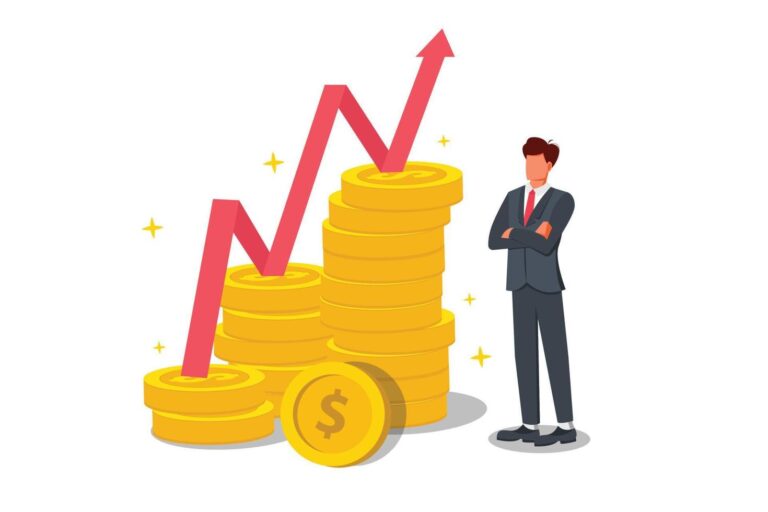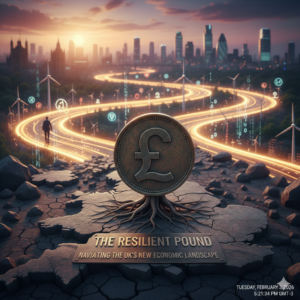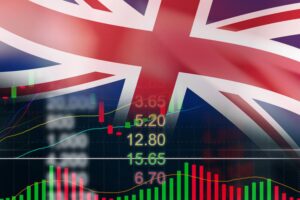
The UK in 2025: The Challenge and the Opportunity for the Economy
Unleash the UK’s Productive Potential The UK is a dynamic, service-based economy that is strong in international trade, finance, and innovation. As we drive through 2025, the UK is wrestling with life after Brexit, changes in the global balance of power, inflation and rapid technological change. This article covers a range of aspects of the UK economy, including its main industries, the stance of fiscal policy, the unemployment pattern and the outlook for the economy over the longer term.

💼 Economic Insight: A Portrait of the UK’s Financial Well-Being
The UK is the world’s sixth-largest economy by nominal GDP and one of the largest globally. By 2025, there are slow, but steady economic growth rates after blistering inflation and high interest rate increases through the last several years. Growth of the UK gross domestic product is forecast to be 1.2% for 2025 by the Office for National Statistics, indicating a tepid return to life before the stagnation that set in during the heart of the 2020 decade.
Services, led by finance, healthcare, education, and technology, now constitute more than 80% of GDP. And the smaller manufacturing and agriculture industries are still essential for trade and food security.
🏦 Monetary Policy and the Control of Inflation
Long-term impacts playing out Just hours after Britain formally left the E.U. at 11 p.m. our time, negotiators began to strike trade deals and lawmakers got down to business on what is expected to be one of the most significant post-Brexit initiatives: the pursuit of trade deals with a host of other countries.
Despite no longer being on the front pages, the events surrounding Brexit continue to impact people on a day-to-day level. Two-way trade with the EU has not returned to pre-Brexit levels and many SMEs are grappling with regulations.
But fresh deals with Asia-Pacific nations, the US and Commonwealth countries are opening up new overseas markets. The government is also spending on “Global Britain” initiatives to increase exports, particularly in digital services and green technology.
🏗️ Infrastructure and Investment: Constructing for Tomorrow
The UK government has promised new spending on infrastructure for:
- Modernising transport (HS2, smart roads etc.)
- This includes the following types of renewable energy projects (offshore wind farms, hydrogen hubs):
- Digital 5G expansion; full-fiber broadband opportunity
These projects are anticipated to generate employment, stimulate local economies and assist with sustainability targets over the long-term.
Private investment is also bouncing back, particularly in fintech, biotech and artificial intelligence start-ups, due to a strong legal framework, strong finance markets and top-tier universities.
👩💼 Employment & Labour Market The trends not to miss
The UK labour market is still quite robust as of 2025, with unemployment rate kept at around 4.1%. Real wage growth, however, has been positive, if not always keeping up with inflation. Industries like health, education, hospitality and logistics are still struggling to fill roles.
The pandemic-fueled move toward remote and hybrid work continues to be part of our reality, leading to shifts in real estate, urban planning and labor laws. And reskilling and upskilling programs to get workers ready for a more digital, automated future are also gaining traction.
🌍 International Trade and Foreign Relations
International Trade and Foreign Relations China’s influence (and threats) are growing With a big push from state-owned banks and the Communist Party itself, Chinese companies have recently become the world’s biggest issuers of dollar bonds, borrowing hundreds of billions of dollars.
Brexit changed fundamentally the UK’s approach to trade. By 2025, this emphasis shifts to bilateral agreements and engagement in international blocs, such as CPTPP.
Key current trading partners are now:
- USA (particulary in finance and tech)
- China (although there aare rising geopolitical risks)
- India (an increasingly prosperous Commonwealth partner)
- There’s Germany and France (still big trading partners)
Diplomacy and economic power are some of the two major challenges in dealing with the world while ensuring good trade relations with also considering national interests.
🌱 The Green Economy Sustainability as a Growth Engine The Green Economy: Sustainability as a Growth Engine
The UK has pledged itself to carbon neutrality by 2050, with interim goals for 2030 and 2040. This in turn has led to a wave of investment and creativity in multiple areas of green industry, including:
- Wind, solar, tidal (harnessing renewable energy)
- EV infrastructure
- Sustainable agriculture and sustainable food systems
- Green finance and the ESG (Environmental, Social, Governance) narratives
The green shift is not only an environmental necessity but also a question of broadening the economic base and creating jobs.
🧠 Innovation, AI, and the Knowledge Economy
The UK is already well placed to succeed in a knowledge-based economy with world-class university and research institutions. The following government policies will support R&D in 2025:
- Artificial intelligence and ML
- Quantum computing
- Biotechnology and medical breakthroughs
- Cybersecurity and privacy of data
Public-private partnerships, tax incentives and dedicated innovation zones are all drawing talent and capital into the UK’s tech clusters, such as London, Cambridge, Manchester and Edinburgh.
🔮 The Outlook: Optimistic With Caution
Out to 2025, the UK economy is painted with a brush of cautious optimism. Adversities still loom, particularly related to trade, inflation and geopolitical uncertainties, but the grounds are being prepared for a resilient, innovative and green economy.
- Key success factors include:
- Accepting the changes in technology
- Skills and infrastructure investment
- Enhancing the international cooperation and partnerships with other states parties.
- Enabling sound, inclusive and sustainable growth
Handled sensibly, such initiatives could ensure that the UK remains a major international economy right through to the end of the next decade.
📊 Risks and Uncertainties We Could Face In Our Business
While there are many good things happening, here are a few clouds on the horizon of the UK economy:
- Where things go wrong: Geopolitical risk, such as Russia-Ukraine and China-Taiwan relations
- Slower global growth, especially in the Eurozone and US
- Climate-related shocks, including extreme weather and fluctuations in food prices
- Domestic political instability, such as new leadership or change in direction of policy
Economic resilience will come from policy action, strong institutions and private-sector flexibility in responding to shocks.
🎯 Conclusion
The UK Economy: Questions of Transformation The UK economy is currently undergoing a period of transformation, influenced by global events, by changes in domestic policy and by the speed of technological change. The road is not easy, but there is tremendous potential for growth, innovation and economic revitalization. If the UK can match investment with longer-term ambition it can come out of the pandemic stronger, greener and more competitive in the global race.
Our Post


The Resilient Pound: Navigating the UK’s New Economic Landscape


